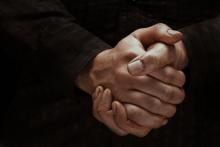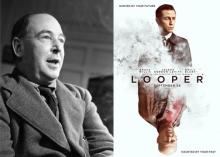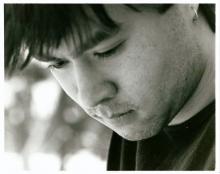Love

A RECENT ONLINE profile referred to farm worker labor union leader Baldemar Velasquez as both "militant" and "genius." It's hard to argue with either of those designations for the 66-year-old founder of the dynamic Farm Labor Organizing Committee (FLOC). The Toledo, Ohio-based union has used a David-vs.-Goliath style to bring corporate giants to the collective bargaining table, thereby improving the living and working conditions of perhaps the least powerful worker group in the nation.
Velasquez, an ordained evangelical Christian who received a MacArthur Fellowship in 1989, simply sees FLOC's work as God's work, and his opponents might consider following the wisdom of the Pharisee Gamaliel, who said of the apostles, "I tell you, keep away from these men and let them alone ... You might even be found opposing God!"
Velasquez, who founded FLOC in 1967, has yet to lose a battle. A 1967 strike Velasquez led against Ohio tomato growers resulted in two dozen growers signing union contracts. A national FLOC boycott of Campbell's Soup in the 1980s resulted in a three-way collective bargaining agreement that raised wages and improved working conditions for tomato workers. A six-year campaign in North Carolina resulted in another three-way deal between FLOC, cucumber growers, and the Mt. Olive Pickle Company. Today, FLOC is going after another giant, Reynolds American, the second-largest U.S. producer of tobacco products.
OUR LIFE TOGETHER can be better. Ours is a shallow and selfish age, and we are in need of conversion—from looking out just for ourselves to also looking out for one another. It's time to hear and heed a call to a different way of life, to reclaim a very old idea called the common good. Jesus issued that call and announced the kingdom of God—a new order of living in sharp contrast to all the political and religious kingdoms of the world. That better way of life was meant to benefit not only his followers but everybody else too. And that is the point of it.
Christianity is not a religion that gives some people a ticket to heaven and makes them judgmental of all others. Rather, it's a call to a relationship that changes all our other relationships. Jesus told us a new relationship with God also brings us into a new relationship with our neighbor, especially with the most vulnerable of this world, and even with our enemies. But we don't always hear that from the churches. This call to love our neighbor is the foundation for reestablishing and reclaiming the common good, which has fallen into cultural and political—and even religious—neglect.
Judaism, of course, agrees that our relationship with God is supposed to change all our other relationships, and Jesus' recitation of the law's great commandments to love God and your neighbor flows right out of the books of Deuteronomy and Leviticus (see Deuteronomy 6:5; Leviticus 19:18). Islam also connects the love of Allah with love and responsibility to our neighbors. In fact, virtually all the world's major religions say that you cannot separate your love for God from your love for your neighbor, your brothers and sisters. Even the nonreligious will affirm the idea of "the Golden Rule": "Do to others as you would have them do to you" (Luke 6:31).

More than once I’ve been referred to as a modern-day Troubadour. I’ve always liked this designation because it has a romantic, archaic ring to it that sounds just a little bit more flattering than mere singer/songwriter, naturally appealing to my vanity. But it once occurred to me that I wasn’t entirely sure of its meaning and thought I should look it up.
Not surprisingly, I discovered the word to have various historical uses and nuances. But the definition that intrigued me most, and which I recognize as fairly accurate of my own sense of calling and vocation is this:
Troubadour:
a lyric poet sent by one (usually of the King’s court)
with a message of chaste love to another.
Well … there you go. Just two weeks ago (on Valentines Day) I posted a song and message of chaste love in a blog. In it, I celebrated 30 years of marriage to my wife Nanci; a union that has resulted in three beloved (now adult) children, their own unions to beloved others, two grandchildren, and a deeply meaningful, long-term foster relationship with a young woman and her beautiful children who, in fact, are coming over for dinner tonight. I can’t wait.
Although not every chaste union strives to produce offspring, Fr. Gabrielle of St. Magdalen, in his meditative devotional Divine Intimacy, teaches that the highest glory of the chaste union is in it’s potential to become a willing “collaborator with God in the transmission of life.” That is: a relationship that is materially fecund; suggesting a dark, loamy richness capable of concealing and safeguarding a vulnerable seed, and providing a nutrient-rich soil from which it can spring to it’s own leafy uniqueness. It’s a lovely image.
Ironically, what struck me this morning is that Valentines Day is celebrated at the very onset of the season of Lent. And Lent, in contradistinction to Valentines, is essentially a season where the Christian “faithful” penitently consider the devastating disaster that is infidelity — particularly, infidelity to God, and by extension, to all that God is in faithful relationship to.

This pledge, which draws on one used by Mahatma Gandhi's independence campaign in India, was used in the U.S. civil rights movement in the 1950s and '60s.
Bio: Executive director of Sexual Minorities Uganda, which works for full legal and social equality in the country, and recipient of the 2011 Robert F. Kennedy Human Rights Award. www.sexualminoritiesuganda.net
1. What’s your response to the letter U.S. religious leaders signed last year, which condemned the “Anti-Homosexuality Bill” before Uganda’s Parliament because it “would forcefully push lesbian, gay, bisexual, and transgender (LGBT) people further into the margins”?
Uganda is a very Christian country. About 85 percent of our population is Christian—Anglican, Catholic, and Pentecostal. So for religious leaders to speak out against the Ugandan legislation, that is very important for me and for my colleagues in Uganda, because it speaks not only to the politicians and legislators, but also to the minds of the ordinary citizens.
It is very important to have respected religious leaders involved, including Archbishop Desmond Tutu, because these are leaders who have spoken out on other human rights issues such as apartheid, women’s rights, and slavery. And for us, for the voice of LGBT rights, to join with these other issues clearly indicates that our movement is fighting for human rights.
WE SHOULDN'T really expect the Oscars to grasp the point of history, though this year the films nominated for Best Picture are a fascinating snapshot of what ails—and could heal—us.
Zero Dark Thirty takes a clinical view of the search for Bin Laden and has been criticized for its portrayal of torture as effective. To my mind this debate may miss the wider question: Torture is bad enough, but a central assumption about the efficacy and validity of killing for peace—that shooting an old man in his bedroom would solve anything—is worthy of enhanced interrogation.
The point is missed also in the brouhaha about Django Unchained, Quentin Tarantino's thrilling satirical Western. People are up in arms about the comic book violence and use of the N-word—but this is perhaps the most powerful, even indelible, portrayal of the violence of slavery ever made for a mainstream audience. Two wrongs don't make a right, and the revenge arc in this film should be questioned, but Tarantino has done a moral service in not sanitizing his fictionalization of historical memory. Lincoln is the perfect companion piece—I highly recommend you see both. Django Unchained uses B-movie tropes to vastly entertain while confronting the real horrors Abraham Lincoln was fighting to end. Lincoln is a theatrical history lesson that delicately handles the moral authority competitions, language games, and political complexity behind the 13th Amendment.

A man buys two dogs to live with him in his apartment. They drive him and his neighbors crazy. They bark at all hours, get sick all over the place and cause rifts between him and his neighbors. And yet he insists that, despite the tremendous amount of work and inconvenience they present, he loves them.
So the question is: does he do all the work and put up with the nonsense because he loves them, or does he love them because he’s invested so much of himself in them?
Researchers looked at this question, particularly with regard to the wild popularity of the DIY furniture store, Ikea. Basically, you pay them to give you some furniture in a box that you have to take home and build. Sometimes you screw it up. Sometimes it takes a lot longer than you expected. Sometimes you scrape the skin off your knuckles and call the furniture names that would make your mother blush. In the end, if most of us assessed the value of our time against the money we’re saving by buying the furniture unassembled, it’s a net loss for us.
So why do we do it?
IT WAS AS if the poison of the rancorous 2012 campaign had seeped into our social groundwater, tainting family gatherings, Facebook feeds, church coffee hours, and workplace lunch rooms. In my lowest moments I pictured an election-result map rendered with myriad fractures, like windshield glass—a nation of particles and fragments, held together, barely, by begrudging surface tension.
How do those of good will find productive and respectful ways to talk about important civic and moral issues when a significant number of people view their fellow citizens as enemies?
Two recent books, by radically different authors, explore how to stay committed to your principles while reaching out and even finding common cause with those who live and believe differently.
ReFocus: Living a Life that Reflects God's Heart, is by Jim Daly, president since 2005 of Focus on the Family. Faitheist: How an Atheist Found Common Ground with the Religious is by Chris Stedman, the assistant Humanist chaplain at Harvard University and an activist in atheist-interfaith engagement. Daly leads a conservative evangelical institution that has been a major player on the Right in the culture wars of the past three decades (including around what Focus would term the "homosexual lifestyle"). Stedman is a young gay atheist who was once attacked by thugs who shouted Bible verses as they tried to shove him and a friend in front of an oncoming train. And yet both men argue, from both pragmatic and ethical grounds, for actively and respectfully engaging those who hold different beliefs.
THE BEST experiences I had at the cinema last year were nostalgic—re-releases of The Life and Death of Colonel Blimp and Lawrence of Arabia were uncanny reflections on the cost of war to soldiers and some roots of contemporary Middle East strife. Here's my list of the best films released in 2012:
10. A tie:The Pirates! Band of Misfits, a gloriously rich, smart comedy for all ages, full of life and self-deprecating humor, and Life of Pi, which envelopes its audience with visual wonders and spiritual questions.
9. Wes Anderson's delightful treatment of childhood first love amid dysfunctional adults, and a film not afraid of the shadow side of growing up, Moonrise Kingdom.
8. The Cabin in the Woods, a gruesome horror comedy that not only enacts and portrays, but understands the lie of redemptive violence.

Many will remember pastor Terry Jones as the champion of the “Burn a Quran Day” event, intended to fan anti-Islamic rhetoric on the anniversary of the Sept. 11 attacks. Though many shouted him down and criticized his motives, he continues to have somewhat of a national platform for his agenda.
In this video produced by the New York Times, we get to witness what I consider a momentary intervention of God’s spirit in a beautifully, creatively nonviolent way. As Pastor Jones condemns Muslims and their religion, a man in the crowd pulls up the lyrics to the Beatles song, “All You Need is Love” on his phone. He stands next to jones and begins to sing, inviting the crowd to join in. It is beautiful because his hate is repaid with song, and the sting of his venomous words is neutralized without a hand or another voice being raised in anger (though I could do without the “idiot” sign, thanks).

NEW YORK — In the afterglow, I give thanks for Thanksgiving Day.
It might be our most spiritual holiday, dealing as it does with that most spiritual of experiences: feeling gratitude.
Despite the commercial drumbeat for the aptly named "Black Friday," Thanksgiving Day itself tends to be about family, food, and free time. On Facebook, people shared recipes for stuffing, answered questions posed by nervous first-time cooks, told stories about traveling to be with family, and flooded the web with photos of people just being together.
I realize that those are ambiguous realities. Not everyone is blessed with healthy families, not everyone has enough food. Many work hard to prepare food and cheer for others to enjoy. But the promise is there — and unlike the promise of material hyperabundance that has come to dominate Christmas, the promise of Thanksgiving Day seems worth pursuing and attainable.

HILDEGARD BLEW in on a late summer storm. Sleek and ebony, eyes a bright chatoyant gold. Between the Supercans and downed tree limbs, she was scratching up worms, plucking at bugs. In this nation’s capital of a little more than 600,000 souls, a loose hen was highly unusual—but there she was, in all her Gallus gallus domesticus glory.
Of course, she didn’t arrive with the name Hildegard. And certainly not Hildegard von Chicken, after a favorite Rhineland mystic. That came later. After she’d been interviewed and photographed for the DCist news blog; after she’d become a destination point for recently migrated hipsters; and after a woman running for local office asked if she could take Hildegard on the campaign stump to make her candidacy “more memorable.”
Hildegard received her name after a chance encounter with La Señora at the 11th street bus stop. “I rescued a chicken,” I told her. “What color?” she shot back.
La Señora is in her 70s and from Paraguay. She is knowledgeable about many things. “Black ... with a green undersheen,” I said. “This is very good. You have most likely rescued it from a religious ritual where it would be sacrificed for evil intentions.” “Wow!” I replied. “What should I do?” La Señora stared at me a moment: “You must pray the rosary with the chicken. Hold her and pray the rosary.”
THIS WAS THE series of curious events that led to my being perched on porch steps on a hill in the imperial city of Washington, D.C., holding my grandmother’s rosary and praying with a chicken, whose name I decided should be Hildegard, “Sybil of 11th Street,” because she was consulted by so many of high and low estate.

THE MASTER, Paul Thomas Anderson’s stomach-punching, fingernails-down-a-chalkboard psychological thriller loosely based on the founding of Scientology, might be more deeply understood as a tale of two egos. We witness a titanic battle for self-control by a man who knows nothing of it (Joaquin Phoenix’s Freddie Quell), while another struggles to distinguish imagination from delusion, his simmering rage emanating perhaps from the terror that the truth he has found may not be enough (Philip Seymour Hoffman’s L. Ron Hubbard surrogate, Lancaster Dodd). Neither of them knows how to love; both are desperate to be loved. They find in each other a conversation partner, a patient, an unrequited lover. They are two of the most human characters the movies have brought us in a long time; their power trips are terrifying, because they may remind us of our own.
There are many key moments: The first meeting between the war veteran and new religious leader, the dictator bonding with his subject over mutual substance abuse; the master holding court in New York society, first offering tender words of potential healing to a grand dame, then exploding at a guest who dares question the source of his “knowledge”; the protégé being experimented with, commanded to walk up and down between a wall and a window until he is both capable of imagining unbridled freedom and driven nearly mad in the process; a science-fictionesque digging for buried treasure on Arizona flatlands that could pass for Mars.
The moment that remains most resonant in my memory after two viewings is still the most ambiguous to me. After Freddie and Dodd first meet, the new father invites the new son (the relationship—and failings of relationship—between fathers and sons is where this film really aches) to attend his daughter’s wedding. The invitation is accompanied by a warning or an invocation: Dodd tells him either “Your memories aren’t welcome” or “Your memories are welcome.” Two viewings leave it unclear—I could check a third time, but it doesn’t really matter, for each is a blessing. You don’t have to carry your trauma always and everywhere. Or you can join this community and still be fully yourself.
AS LARRY WATSON arrived by charter bus at the Corrections Corporation of America in Nashville, Tenn., apprehension pulsed through his body. An ex-offender, Watson had been at prison facilities before, but never for this reason—and never willingly.
Watson had been incarcerated three different times—in 1978, 1983, and 1990—for distribution of drugs. The last time, he was sentenced to up-to-30 years in jail. He was released on Jan. 14, 1993, after serving 36 months.
Now he found himself on a very different path. Watson and 17 others, mostly ex-offenders, had trekked nearly 700 miles in May 2010 on a pilgrimage from Washington, D.C., to Nashville. As they pulled into the grandiose Corrections Corporation of America (CCA) headquarters, home to the largest private prison company in the United States, a swarm of security officials greeted them. Watson and his fellow sojourners became increasingly mindful of the spirit in which they journeyed.
Their plan was creatively simple: Purchase a share of stock in the Corrections Corporation of America, the behemoth corporation that owned the private prisons where some of the group had been incarcerated. Attend a CCA shareholders’ meeting. Then, as stockholders, tell their personal stories as a way of witnessing to the “spiritual crisis” occurring within the prison industry, while also building relationships with key CCA personnel.
In essence, using their experience from the inside, members of the group planned to tell CCA how to do its job better.

As the credits rolled after Looper in a packed Chinatown movie theater in Washington, D.C., I simply sat in reverent silence. Moviegoers on all sides began to rise and quietly leave the theater, but for a brief moment all I could do was just sit there. Quite simply, the movie blew my mind.
When I snapped out of it my thoughts started racing, analyzing the ending, which I won’t ruin for you, and the movie as a whole. It wasn’t a question of whether it was “good” or captivating — those were givens. Rather, I started mining the film’s rich themes and questions, particularly what it said about love.
While sitting there, lost in my mind, I began to notice the music accompanying the names moving onscreen. The song’s chorus sang something like, “I loved you so much that it’s wrong.”
I don’t think the song choice was an accident.
That lyric, I think, illuminates the crux of the film: can something like “Love” — not just romantic love — become perverted? Or, in other words, can our love for one person lead us to do horrible things to others?

In a world that seems completely and irrevocably divorced from the teachings of Christ, where in contemporary society is there a place for the Christian voice? Politicians shamelessly use Jesus’s name to justify their authority and gain influence without bothering to unpack the full depth of theological and ethical implications of their words. Corporations are granted the rights of individuals, but some individuals are denied the resources they need in times of crisis to support their families and livelihoods. And the public debate is so full of vitriol and hyperbole that dehumanization and outright hatred of those with whom we disagree has become the norm. In light of the situation in which we find ourselves, how then should Christians behave?
While it might seem appealing to remove ourselves from secular society altogether and forsake the world in all its brokenness in favor of a uniquely Christian ethic that appeals and applies only to us, Christians have an obligation to serve as active participants in public discourse— elevating the conversation rather than abstaining from it so that we may try to live the truth and convictions of our faith.

IT WOULD BE strange if any segment of the liturgical year left out the theme of migration. The Bible is riddled from end to end with the journeys of nomads, pilgrims, exiles, returning exiles, and the risky intrusions of strangers across boundaries erected to deter them.
This season’s poster child for divinely inspired mobility is the lovely figure of the Moabite “alien” Ruth, who chooses to leave her own country and accompany her beloved Jewish mother-in-law when she returns as a widow to her native Judea. Ruth’s story is romantic, even erotic, as she daringly slips into the arms of Boaz during the sexually charged siesta at the threshing floor. But our readings are no mere novelette. Scripture shows how much hinged on her pluck and her allure. Her great-grandson will be David, and her descendant Jesus the Messiah!
“Where would we be without immigrants?” is one of the many questions between the lines of the scriptures. The Bible has lots to say to us about the divine impulse active in migrations, and the opening of the heart to “strangers within our gates”—things guaranteed to alarm defensive nationalists of every stripe.
I remember the deep spiritual emotion that caught us all up in Boston’s Faneuil Hall during my naturalization ceremony—Cambodian refugees, Vietnamese grandmothers, Salvadoran families, and all the rest of us. I think of the migration of my own great-grandparents to Russia, and the adventures that have scattered my own family from New Zealand to Mexico. How God revels in mixing us all up!
DURING HOLY WEEK this year, columnist and practicing Catholic Andrew Sullivan wrote a Newsweek cover story titled “Christianity in Crisis.” He argued that Christianity is being destroyed by politics, priests, and get-rich evangelists. This would “baffle Jesus of Nazareth,” Sullivan wrote. “The issues that Christianity obsesses over today simply do not appear ... in the New Testament ... It seems no accident that so many Christians now embrace materialistic self-help rather than ascetic self-denial ... [and] no surprise that the fastest growing segment of belief among the young is atheism, which has leapt in popularity in the new millennium. Nor is it a shock that so many have turned away from organized Christianity.”
My sense is that people are leaving organized Christianity because it has left behind the radical message of its founder. This has been a long and continuing struggle. Jesus taught and embodied a revolutionary, transforming love. Forsaking wealth and power, he constantly reached out to those on the margins of society. Renouncing violence, he loved not just his friends but his enemies. Condemning religious self-right-eousness and hypocrisy, he healed broken lives and opened eyes and hearts to the near presence of the kingdom of God.
The church confesses him as the risen Savior and Lord. But then, so often, it tries to domesticate him, explaining away those sharp, demanding edges of his compelling words, and finding theological excuses for not following his radical ways. We call upon people to believe in Jesus. But the question is whether we believe Jesus.

My neighbors signed my report card.
Having had the same conversation countless times in my life, I have learned that one sentence sums up a cacophony of explanations.
It is tricky, I have found, trying to explain why friends are listed as my emergency contacts, why I wake up Christmas morning in the home of people to whom I am not related, and why my parents — both living — have been anything but.
The separation started so long ago that I struggle to remember exactly when it began. When I was starting middle school my mom’s depression hit hard and fast. My dad, who understands love as a finite commodity, could not muster any for me. Loving her meant giving all of it to try to save her. His attempts and inability to do so created a stress that amplified his MS from inconvenient to disabling.
In a moment, it seemed, they were gone.
We were wealthy and Southern and had everything that went along with both: a close-knit community, punctilious social obligations, and money to stay afloat. In the world in which I grew up, everyone surely knew everything about everyone, but damn if they weren’t polite enough to pretend it was all OK. It was a magnificent masquerade.
But the truth remained: I was an orphan.

"Sticks and stones may break my bones but names will never hurt me."
I was sitting outside on the playground bench wiping the tears of a child when this proverb came to mind. It isn’t true, of course. Nancy was a second-grader going through an evaluation process to help us understand why she couldn't read. Kayla was one of her classmates. As they were climbing the ladder of the slide, Kayla yelled out, "Nancy is retarded!"
Ouch.
Words can break our hearts.